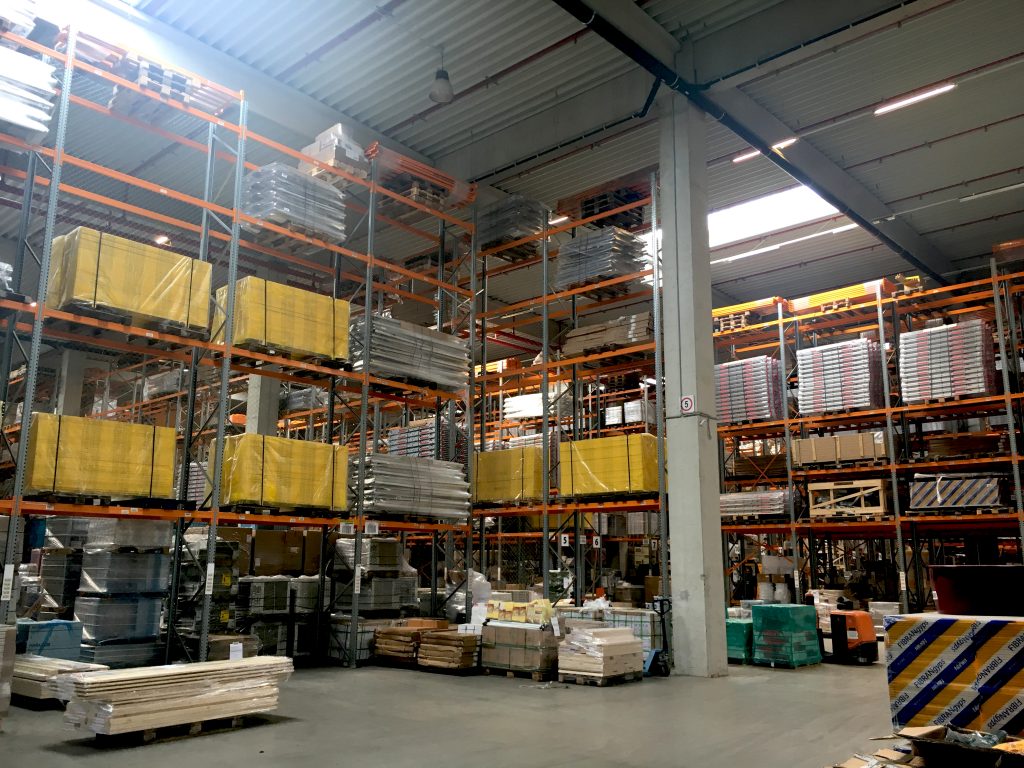- LACK OF STORAGE SPACE OR POOR USE OF STORAGE SPACE
- SUBSTITUTION OF GOODS AND AND DELIVERY MISTAKES
- LONG-TERM SEARCH OF GOODS
- POOR GOODS FLOW AND CONGESTION ON INPUT OR OUTPUT RAMPS
- LACK OF INFORMATION ON STOCK
- NON-EFFECTIVE USE OF WORK FORCE
- LACK OF INFORMATION ON DELIVERIES IN CASE OF WITHDRAWAL – TRACEABILITY
SO, WHAT ARE THE BENEFITS?
- Reduced Operating Expenses – A well-designed WMS reduces operating expenses in a variety of ways. This type of system determines the most effective use of labor and space. Expiring and perishable items are picked first, and item locations are optimized to streamline picking and putting-away efforts.
- Simpler Just-in-Time Inventory – Achieving a balanced, just-in-time inventory is a breeze with the right warehouse management program. Waste, scrap and obsolescence are kept to a minimum – items are kept in the proper environment and used in the most effective order. Record accuracy is drastically improved, which minimizes on-hand quantities, safety stock and lot sizes.
- Enhanced Security – warehouse management systems require employees to use individual user accounts when entering transactions. This creates an audit trail that connects specific employees to specific transactions, which improves accountability and reduces the risk of theft and other issues. It also allows employers to identify new training opportunities and other ways to improve employee practices.
- Process Optimization – With a WMS, you can optimize various business processes. Systems are based on barcodes but can be copatible with many input methods, including smart scales and RFID, allowing you to further streamline picking processes.
- Enhanced Demand Planning – warehouse management systems help you ship perfect orders more consistently, they help you achieve clean demand histories. Your perfect order rate will improve dramatically after adopting such a system. What’s more is that this software can predict future demand quite accurately using best-fit algorithms, allowing you to stay one step ahead in your industry.
- Maximize Labor Resources – A WMS lets you easily determine which picking, packing and putting-away processes and combinations work most effectively for your business.
- Improved Employee Work and Morale – When operations flow seamlessly, employees feel better about their work environment. There is less stress, and the improved productivity and profitability elevate workers’ moods. This all adds up to a workforce that is enthusiastic and satisfied, further enhancing the overall success of your business.
- Enhanced Transparency – Warehouse management systems provide complete transparency for on-hand balances and inventory usage, which allows suppliers to more effectively map out their own processes. This results in reduced lead times and helps minimize the risk of ending up with costly excess inventory. Additionally, since employees have access to real-time data, they’re able to provide more accurate information to customers in a timely fashion.
- Improved Relations with Customers and Suppliers – The benefits of warehouse managements systems extend beyond the organization itself. Supply and demand chains are optimized, which means fewer long waits for suppliers at docks and loading bays. Customers enjoy reduced delivery lead times and fewer order inaccuracies. The reputation of your business among customers and suppliers will improve under such a system.
Other benefits of implementing WMS:
- complete optimization and warehouse monitoring
- connection with ERP
- serial traceability
- using FIFO and FEFO methods
- space utilization
- increased transprency
- inventory control (locking, reservations)


